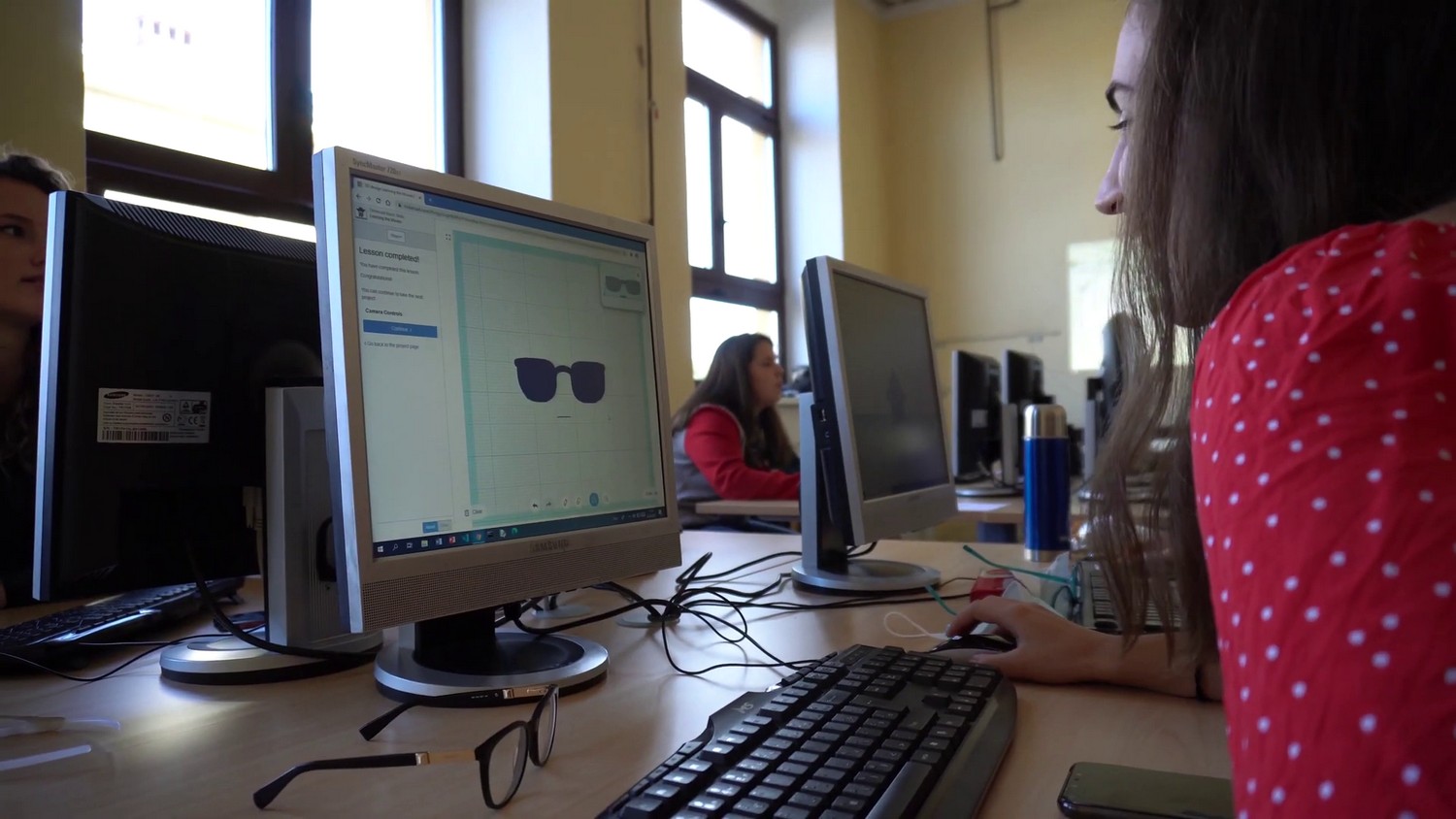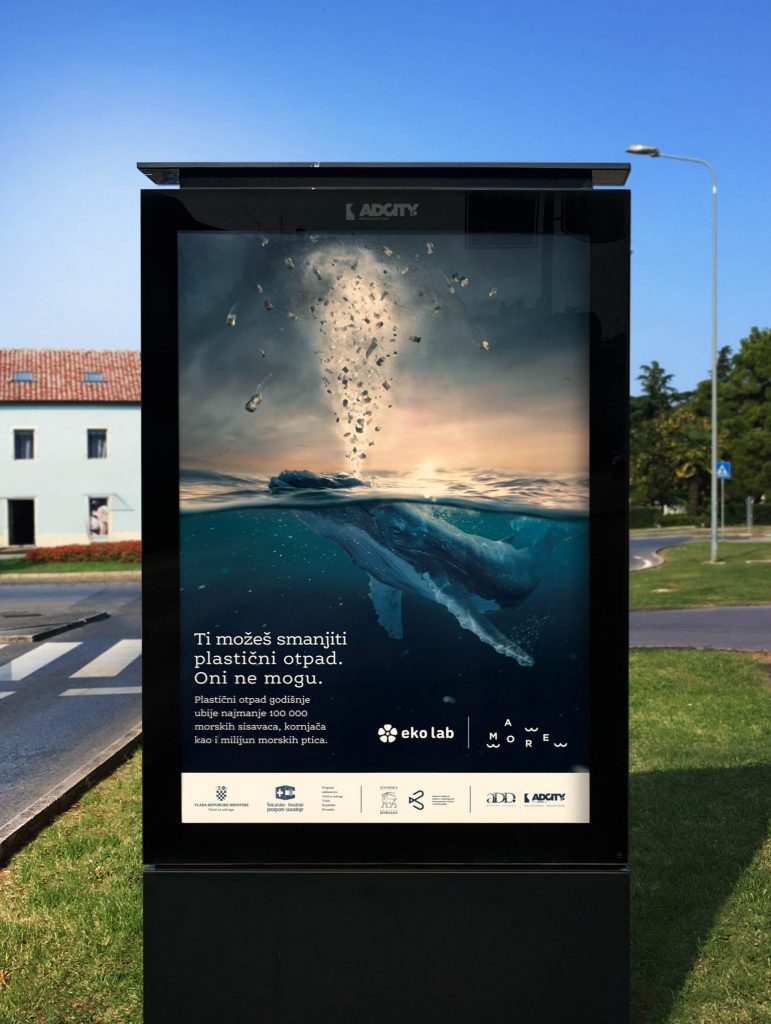October 21, 2021 - EKO LAB is a place to learn, exchange knowledge, and experiment to develop critical thinking, creativity, and innovation for high school students. The program is realized through the cooperation of schools, civil society, scientists, and the community, to create conditions to create a more sustainable and responsible future together.
In 2019, the EKO LAB project began, which funds were provided by the Office for Other Governments of the Republic of Croatia within the Croatian-Swiss Cooperation Program. The project leader was the Poreč Association for the Improvement of Life Quality, with Pula High School, Technical School Pula, School of Applied Arts and Design Pula, and the Croatian Association Interdisciplinary Artists (HUiU) as partners. As a result, the project was approved for the entire requested amount and, in the second round of the call, was the best among the approved projects.
"It all started with chit-chat at the Pula market where Petra and I met by chance. One of those brainstorming meetings when ideas just come up. So it's from one "what if we ...?" conversation that created the future EKO LAB," says Marko Kalčić, a professor of French at the Pula High School and one of the members of the Eco Board of the school.
Both nature lovers and those active in its protection designed and applied for the project and ultimately implemented it with partners and numerous associates. Environmental protection, i.e., the protection of our planet, should become a priority at all levels. To create a more sustainable and responsible future, we cannot and must not think about that future without young people. EKO LAB includes them.
"EKO LAB is designed as a place to meet, exchange knowledge, create, and experiment for young people to develop critical thinking, nurture creativity and have the conditions to easily come up with ideas that may become future successful green solutions," says Petra Počanić from the Zona Association.
Through the project, young people learned about the problem of plastic waste, types of plastic, reducing the use of plastic, recycling, and innovations in this area. In addition, they learned about the processes of creating new products - from understanding problems to creating prototypes - and socially responsible business. Most importantly, they were given conditions for hands-on learning as well. Namely, as part of the project, the unused space inside the school was adapted, and small machines for recycling plastic were rented - a washing machine and dryer, a crusher, and an extruder for filament. Young people were thus introduced to the recycling process. Also, 3D printers were used for prototypes of product ideas they devised during the project. Finally, the whole process was presented at the final exhibition in the Croatian Association of Interdisciplinary Artists (HUiU), as part of EKO WEEK, or sustainable development week.

“Recycling may not be the happiest solution to the plastic waste problem at the moment. However, if young people can learn about these processes early enough, experiment, think and make mistakes, they will come up with better solutions quickly. Moreover, being able to work on machines opens up many opportunities for the development of future ideas," adds Petra.
"We ambitiously designed the project as a collaboration of three schools, with young people who have different skills, and they are connected by one thing in common - nature protection and responsibility to the community. There were many challenges, trials, and errors. Many things would be different now, but it is the essence of the project - to learn together, make mistakes and be better next time," says Sabina Damiani from Zona.

Despite many challenges, undoubtedly the pandemic and the inability to reunite, the project found itself awarded. Studio Tumpić-Prenc designed an awareness campaign for the EKO LAB and aMORE festival on the problem of plastic waste. The campaign won gold at the European Green Award, which awards prizes for outstanding contributions to sustainable development in Europe. It was also selected for an exhibition as part of the prestigious Cannes Lions festival. Furthermore, it found itself in the company of socially responsible Great Ads for Good projects chosen by the international non-profit organization ACT Responsible. The exhibition includes the world's best works exclusively in the field of socially responsible projects of non-governmental and charitable organizations and companies in the areas of solidarity, human rights, education, and the environment.
EKO LAB continued its journey. Its longevity and development were the initial desire of the applicant. Pula High School ensured the continuation of the project through the Central European Initiative tender. In the competition of more than 70 schools, the Pula project "Plastic scholastic: towards better education and innovation on environmental sustainability" was in the top 3 and received the support of 20,000.00 euros. The plan is to additionally equip EKO LAB 3Devo with recycling machines and create even better conditions for young people at the Pula High School.
“We continue to work on the problem of plastic waste and disposable plastics to create new useful objects from waste in the recycling process and experiment with recycling processes. Who knows, maybe there is a new material expert or recycling process expert among our young people who will contribute to the solution of plastic waste disposal," Marko said.
The students will design new products with the Local Action Group in Fisheries "Istrian Batana." Through the project, students will better understand the goals of sustainable development of the UN, the process of joint creation, and work on a common goal for the benefit of the local community. Through the process, they will learn new skills and competencies and work together to create new products, promote social responsibility and become bearers of positive change in their local community and beyond.
"The greatest satisfaction is when a project is taken over by the community for which it was designed and continues to work on it. This is the case with the Pula EKO LAB. I am sure that Pula High School will continue its activities in the best possible way, and we will certainly continue successful cooperation and development of the EKO LAB project," concludes Sabina.
For more, make sure to check out our dedicated lifestyle section.


